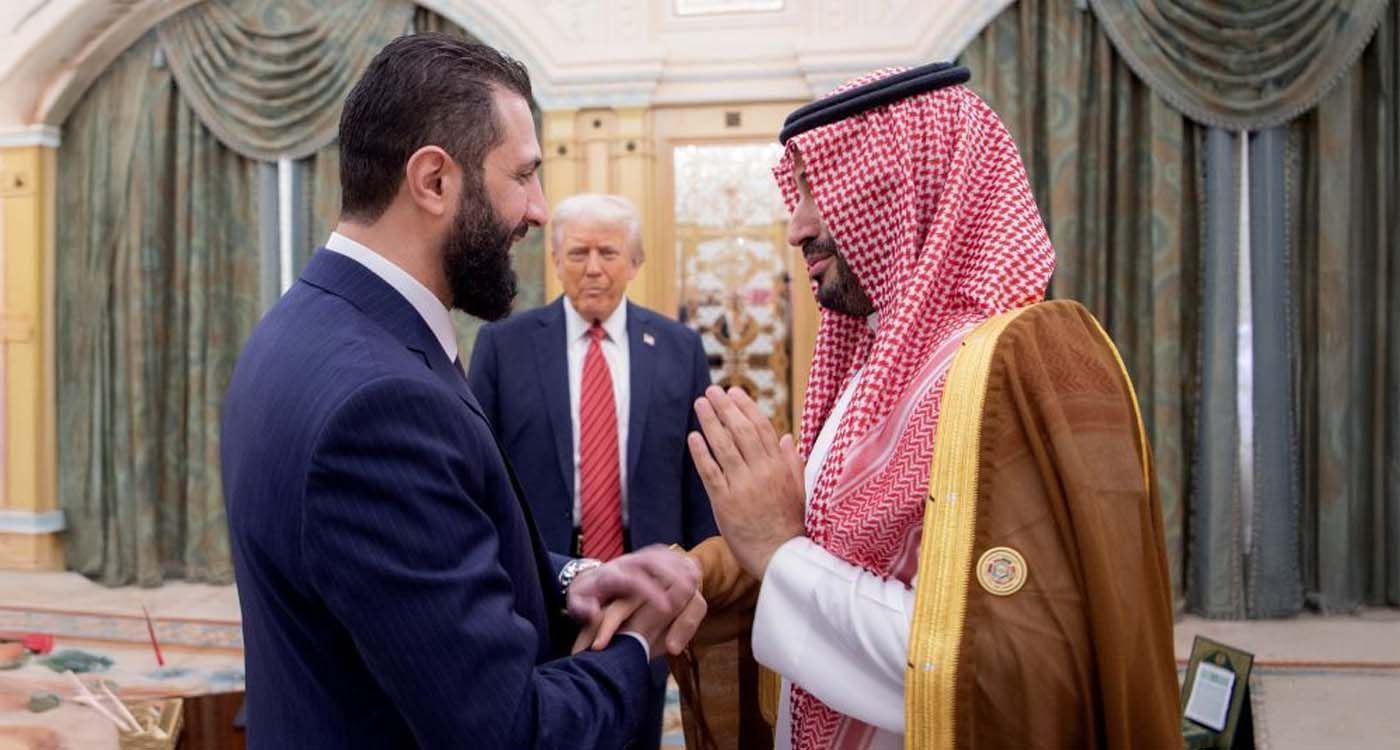- Home
- Middle East
- The Economics of Peace: How Trade Disarms Nations

©Bandar Al-Jaloud / Palais royal saoudien / AFP
Warlords often repeat the same line to their followers: We know what’s best for you, and you must fight for a cause we’ve already defined. But in a world where conflicts can be resolved through law, why drive people into violence that is both senseless and costly?
War: A Losing Proposition
In societies built on cooperation and the rule of law, conflicts are settled through arbitration, not violence. Institutions like the Permanent Court of Arbitration in The Hague, the International Court of Justice, commercial arbitration centers and the World Trade Organization (WTO) exist precisely to help countries resolve disputes peacefully, especially those tied to trade.
This approach isn’t rooted in idealism but driven by self-interest, a principle clearly laid out by Scottish economist Adam Smith in the 18th century. Armed conflict is immensely costly and destructive, and no rational person stands to gain by resorting to violence to settle a disagreement.
Private companies strive to cut costs, eliminate inefficiencies and maximize profits. Governments, on the other hand, don’t operate by the same logic. The average politician has little incentive to be efficient — their salaries aren’t linked to their output, and they rarely suffer for their failures.
When a private company falters, profits drop, costs surge, shareholders panic and bankruptcy looms. But when a government fails, it is public money that’s been wasted. And as if that wasn’t enough, the taxpayer is left to shoulder the burden — forced to pay for the wreckage of a war they never chose, launched by local power players who claim to speak on their behalf while acting behind their backs.
Peace of Interests
When goods don’t cross borders, soldiers do. In The Spirit of the Laws (1748), French philosopher Montesquieu argued that commerce softens manners by weaving a web of interdependence. Clearly, this Enlightenment thinker hasn’t fallen into irrelevance.
That spirit shaped US President Donald Trump’s approach to peace in the Middle East. The Abraham Accords, signed in September 2020 by Israel, the United Arab Emirates, Bahrain, Morocco and Sudan, were grounded on concrete action: direct flights, business visas, technology partnerships, energy cooperation and more.
Here, peace wasn’t a gesture. It was a transaction.
According to the American think tank RAND Corporation, the Abraham Accords could create four million jobs and generate $1 trillion in economic activity over the next ten years. Trade between Israel and the signatory countries already saw a dramatic rise — up 234% between 2020 and 2021. Trade with the UAE alone jumped from $50 million to over $600 million. And that’s just the beginning.
These aren’t inflated claims or political spin, they’re the real, measurable outcomes of free trade made possible by peace. Prosperity here doesn’t come from lofty speeches, but from aligned interests. This is quantifiable peace — lasting and grounded — unlike the rigidity of the “Three No’s” from the 1967 Khartoum Resolution: no peace with Israel, no recognition of Israel, no negotiations with Israel.
This model of peace rooted in self-interest finds echoes in the thought of German philosopher Immanuel Kant. In Perpetual Peace (1795), he argued that commercial republics are far less likely to wage war than absolute monarchies — not because they’re more virtuous, but because they’re more cautious. After all, it’s the people, not their rulers, who pay the price in blood.
Today, the advantages of a market economy, and the peace it encourages, are no longer just ideas on paper. They’re backed by data.
As Christ once said, “All who draw the sword will die by the sword.” A warning still worth heeding.
Read more




Comments